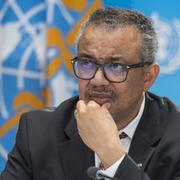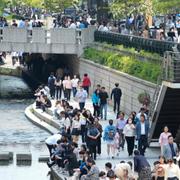
Globala dödstalet är över 500 000 – 171 dagar efter första dödsfallet
Antalet dödsoffer i covid-19 passerade på söndagskvällen 500 000 globalt, enligt Johns Hopkins-universitetets sammanställning. Experter är eniga om att den verkliga dödssiffran troligen är betydligt högre.
För 171 dagar sedan, den 9 januari, inträffade det första dödsfallet i den kinesiska staden Wuhan. Sedan dess har pandemin spritts över världen och haft sitt epicentrum i såväl Europa som Nord- och Latinamerika.
Det värst drabbade landet är USA som har 125 000 dödsfall och över 2,5 miljoner bekräftade smittfall. Därefter kommer Brasilien som har över 55 000 dödsfall, skriver TT.
bakgrund
Coronapandemin
Wikipedia (en)
The COVID-19 pandemic, also known as the coronavirus pandemic, is an ongoing global pandemic of coronavirus disease 2019 (COVID‑19), caused by severe acute respiratory syndrome coronavirus 2 (SARS‑CoV‑2). The outbreak was first identified in Wuhan, China, in December 2019. The World Health Organization declared the outbreak a Public Health Emergency of International Concern on 30 January 2020, and a pandemic on 11 March. As of 28 June 2020, more than 10 million cases of COVID-19 have been reported in more than 188 countries and territories, resulting in more than 499,000 deaths; more than 5.08 million people have recovered.
Common symptoms include fever, cough, fatigue, shortness of breath, and loss of sense of smell. Complications may include pneumonia and acute respiratory distress syndrome. The time from exposure to onset of symptoms is typically around five days but may range from two to fourteen days. There is no known vaccine or specific antiviral treatment. Primary treatment is symptomatic and supportive therapy.Recommended preventive measures include hand washing, covering one's mouth when coughing, maintaining distance from other people, wearing a face mask in public settings, and monitoring and self-isolation for people who suspect they are infected. Authorities worldwide have responded by implementing travel restrictions, lockdowns, workplace hazard controls, and facility closures. Many places have also worked to increase testing capacity and trace contacts of infected persons.
The pandemic has caused global social and economic disruption, including the largest global recession since the Great Depression. It has led to the postponement or cancellation of sporting, religious, political, and cultural events, widespread supply shortages exacerbated by panic buying, and decreased emissions of pollutants and greenhouse gases. Schools, universities, and colleges have been closed either on a nationwide or local basis in 172 countries, affecting approximately 98.5 percent of the world's student population. Misinformation about the virus has circulated through social media and mass media. There have been incidents of xenophobia and discrimination against Chinese people and against those perceived as being Chinese or as being from areas with high infection rates.
Omni är politiskt obundna och oberoende. Vi strävar efter att ge fler perspektiv på nyheterna. Har du frågor eller synpunkter kring vår rapportering? Kontakta redaktionen



